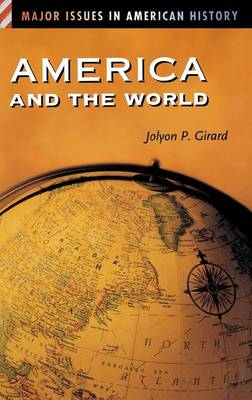How should the United States have handled key events and problems in its history of relations with other world nations? This resource will help students evaluate the arguments on both sides of the issues, the personalities involved, how the issues were decided and why, and the long-term impact of those decisions on the future of the nation. This complete student resource guide provides a wealth of material for student debate and research on thirteen pivotal events in the history of United States foreign relations. A narrative overview of each event, expert analysis, the text of primary source pro and con documents contemporary to the time of the event, and ready reference materials will help students understand the conflicting issues behind these events and apply critical thinking skills to their evaluation of those issues. The documents provide insight into the views of people involved in the decisions, actions, and criticisms of each event covered.
From George Washington's Farewell Address, which advocated American neutrality, to the Reagan-Gorbachev agreement at Reykjavik, United States relations with the rest of the world have swung back and forth from isolationist to interventionist. Each entry contains an introductory discussion and analysis of the event, followed by the text of primary documents reflecting a variety of viewpoints contemporary to the time of the event on how the United States should deal with the problem or issue. A narrative introduction to United States relations with the rest of the world in historical context, a helpful bibliographic research guide for each event, including recommended websites and videos, and a timeline of key events will aid the student researcher. This is an ideal resource for student research and classroom debate.
- ISBN10 0313312923
- ISBN13 9780313312922
- Publish Date 30 August 2001 (first published 1 January 2001)
- Publish Status Active
- Publish Country US
- Imprint Greenwood Press
- Format Hardcover
- Pages 328
- Language English
